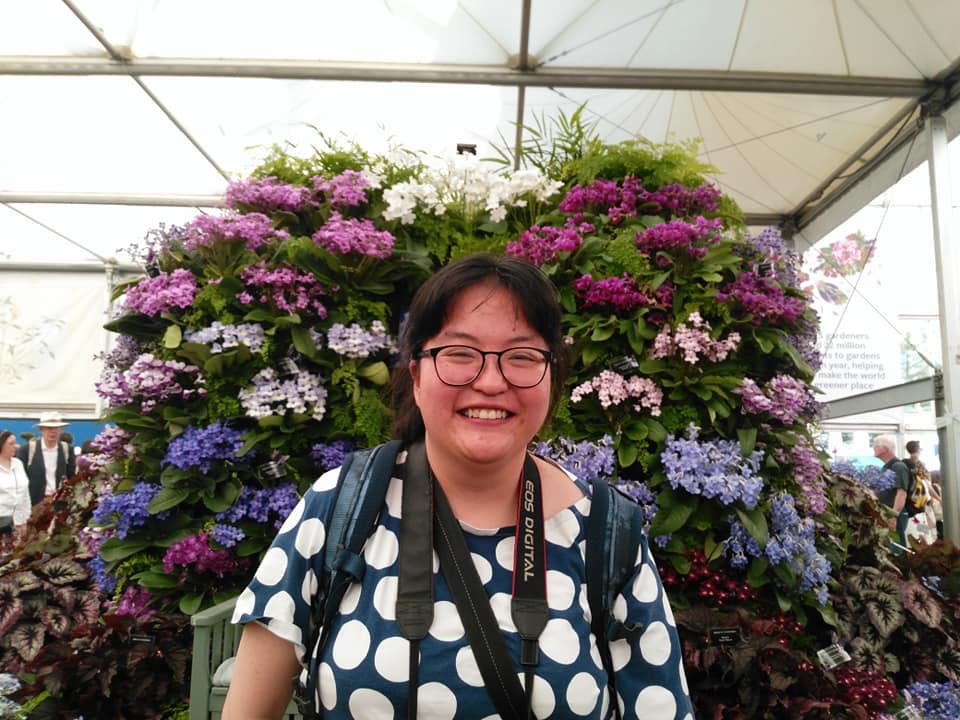
This month we speak to Piangfan Naksukpaiboon from Thailand, a Marie Curie Early Stage Researcher at Queen’s University Belfast and neurodiversity champion. Piangfan shares with us her experiences as an autistic researcher - and how a flexible approach to managing her work has enabled her to excel.
Could you tell us a little about your research?
The aim of my project is to improve the treatment of patients with colorectal cancer. To do this I am looking at data from lots of studies to see how different types of cancer respond to a drug. I make the data into visualisations such as graphs to get insights into the complex processes which happen the development of cancer cells.
What a typical working day might involve?
Due to the pandemic, I am now working from home. I usually start with checking my emails and review my to-do list, and I often go to the gym during the day.
I often find it easier to concentrate later in the day so I work during the evening and at night – sometimes I end up working very late. This is a pattern which works for me personally and I find that being flexible means I can produce better work.
My work mainly consists of coding to create simulations and doing data analysis using the R programming language.
On top of my usual work I try to improve my knowledge of data science and programming by learning and practising coding through an online training course, and I need to keep reading new papers because this field changes very rapidly.
Is the pandemic impacting on your research and if so, how are you overcoming these challenges?
Because I am autistic, I find change very disruptive and at the beginning of the pandemic this had a big impact on my work.
However, we have been able to manage this by asking for help – for example, the university have provided a desktop computer to use at home and substantial financial support, and they have been very open to my flexible hours.
I have regular communication with my supervisor, so he always knows what’s up. During the pandemic, we also found out that I have a long-term health condition and treating that problem has significantly improved my personal and professional life.
You joined Queen’s University Belfast via SPARK - a Horizon 2020 MSCA COFUND Doctoral Programme for 20 interdisciplinary PhD students. How did you hear about this opportunity and what did it take to get accepted onto the programme?
I found the opportunity on the EURAXESS website! I read about the programme and the fact that they were looking at the person, looking beyond their academic achievements and seeing their leadership skills and more, struck a chord with me.
I applied for the programme and was asked to send in a two-minute video explaining activities I was involved in and the research I was doing. It was the most intense two-minute video I’ve ever done!
I also had to give a presentation for non-experts about the research I would be doing during my PhD. The whole process was nerve-wracking at first and at the end of the interview I asked whether they would be okay with accommodations for my autism. The panel said they were more than happy to help and support me, and that made me want to go to Queen’s.
Do you benefit from any cohort activities with your fellow SPARK doctoral students?
I benefited from the training because a PhD is very individualised and connecting with my cohort helped me to have social connections.
Learning about intellectual property and commercialisation was especially helpful because in my future career I might be working for a private pharmaceutical company.
Career talks from academics and people in industry and the charity sector also gave me a quick idea of what things might be like after my PhD.
In 2016 you did a TEDx talk sharing your personal experiences as an individual on the autistic spectrum. In your experience, have you found that being autistic shapes or influences your work as a researcher? If so, in what kinds of ways?
One of the things which makes me different from neurotypical people is my multifaceted interest in things. I love to learn and to ask questions, which is a very important scientific practice. Wanting to explore is a big help – when I have a passion I don’t give up because I want the answers.
These traits have helped to propel me forward in my education and research.
Coming from Thailand, where fewer than 5% of the disabled population obtain an undergraduate degree, being one of the first to do a PhD, it is a big honour and a big responsibility to be a trailblazer and let people know that just because they are different doesn’t mean their opportunities have to be limited.

"I have really appreciated the way people here have been able to look beyond the label ‘autism’, see me for myself, and provide the support and accommodations I need to succeed."
You’re originally from Thailand, have studied in Norway and the USA and you are now a researcher with a university in Belfast. What’s your favourite thing about Northern Ireland?
Northern Ireland is a very beautiful scenic nation with great nature despite being windy! I am currently working remotely in Birmingham, but I will be going back to Belfast to do my viva later in the year. I am looking forward to visiting Northern Ireland again and I’m hoping to see some puffins and explore the rich history of the region.
Piangfan is an Early Stage Researcher at Queen’s University, Belfast through the SPARK Marie Curie COFUND Programme. Follow Piangfan on Twitter @Pingviners_n
To receive more stories like this direct to your inbox, sign up to our monthly newsletter
